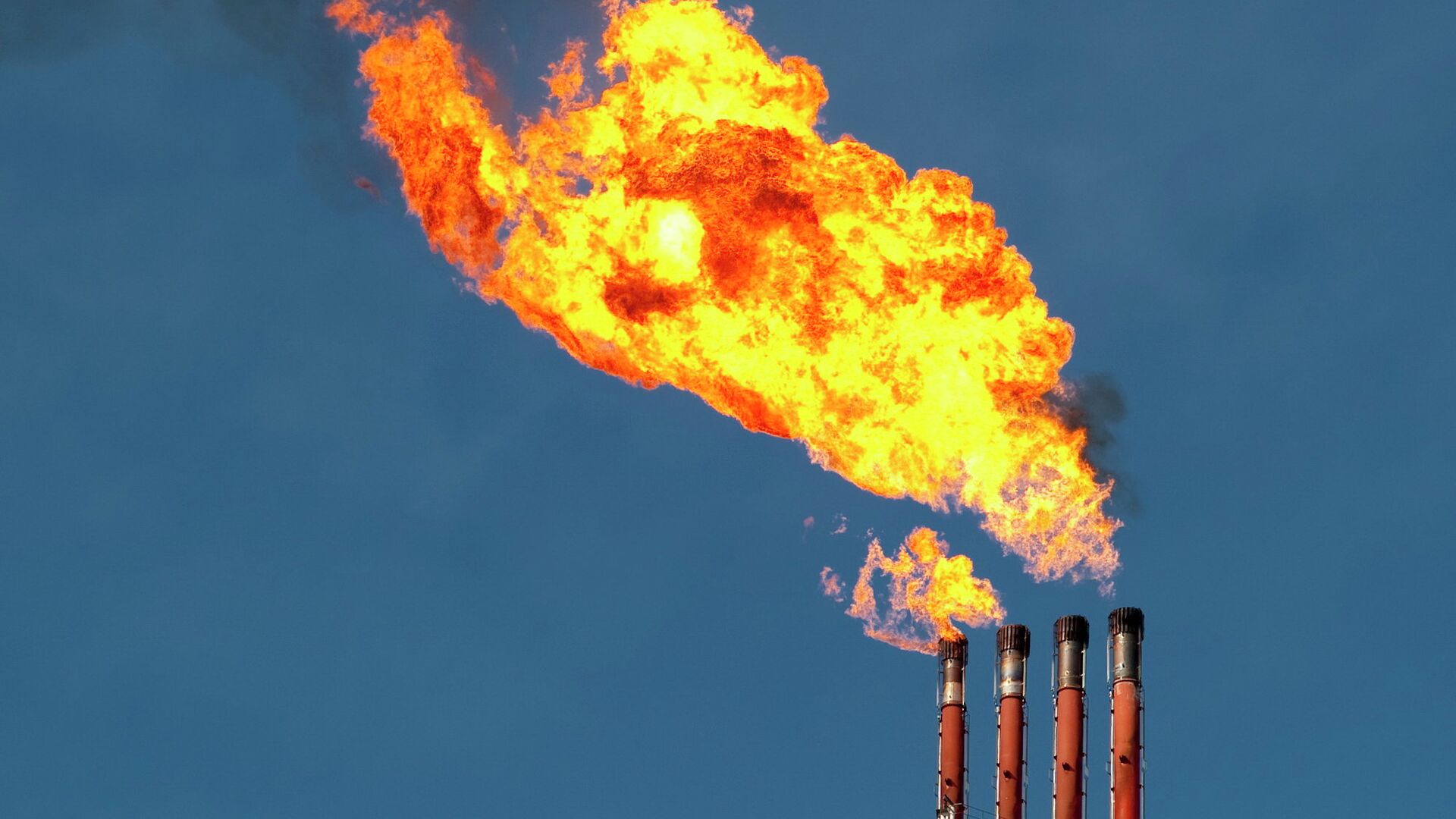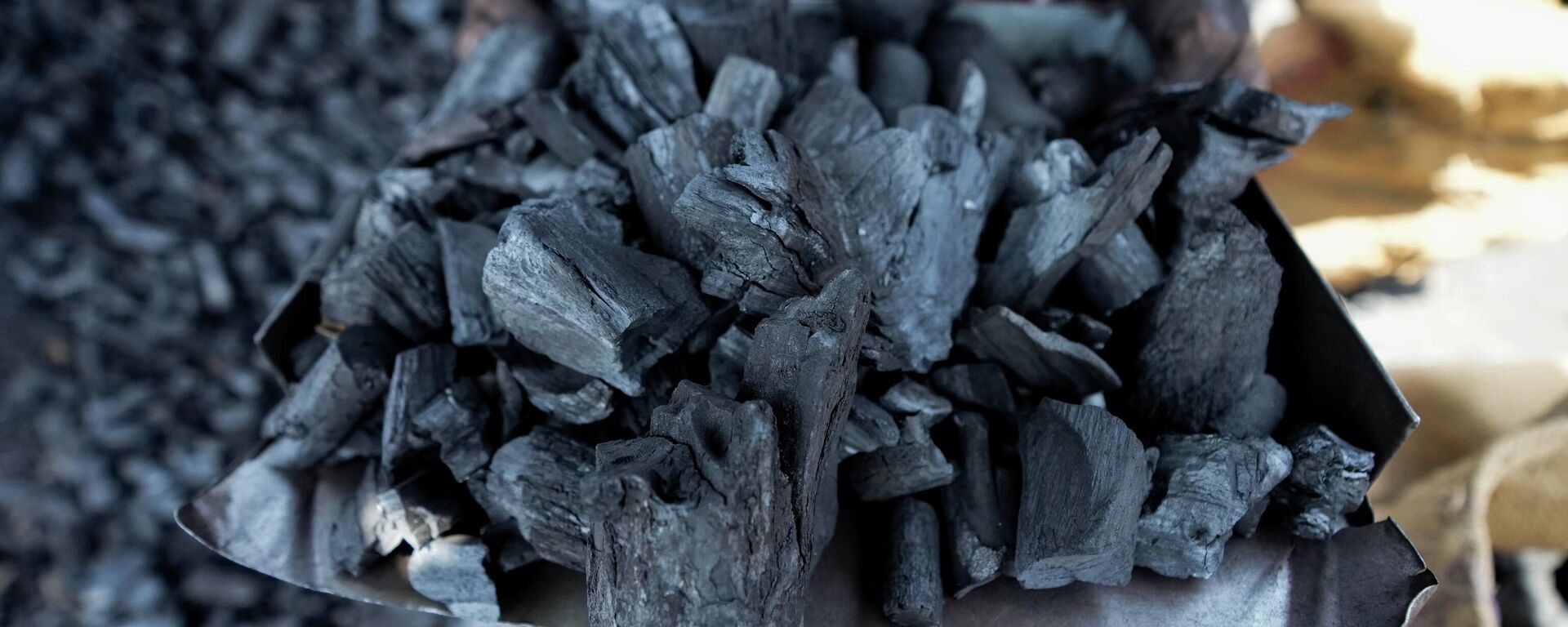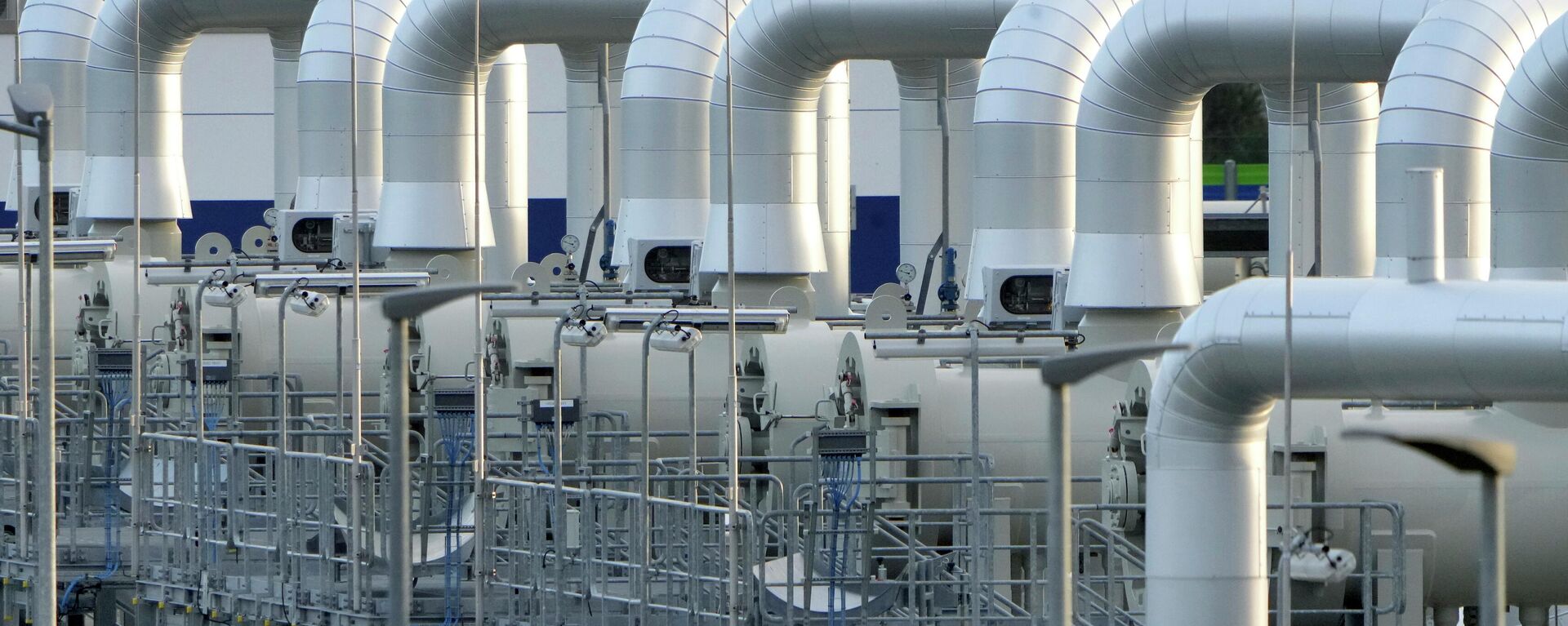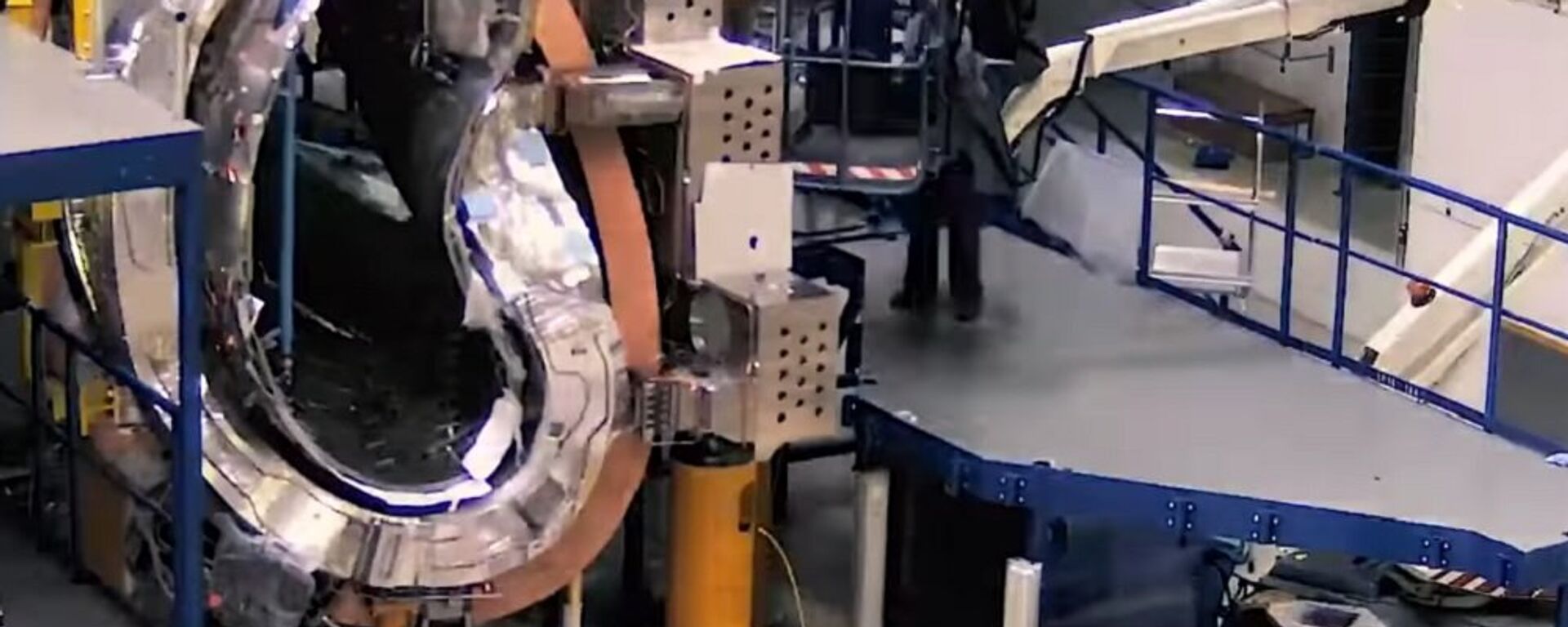Who Controls Gas Prices and How Are They Set?
13:50 GMT 19.12.2022 (Updated: 11:45 GMT 09.02.2023)

© Sputnik / Sergey Krasnouhov
/ Subscribe
Moscow has warned that Brussels’ talk of a bloc-wide cap on natural gas prices would increase market instability. Who controls gas prices? Who sets them? What factors, economic and geopolitical, impact them? The answer is: it’s a bit complicated. As Russia’s president once said, gas isn’t a commodity “like watches, underwear or neckties.”
European Union energy ministers’ discussion of a “market correction mechanism,” or a cap on natural gas prices, cannot but lead to the destabilization of the market and will result in heightened uncertainty, says Russian Ambassador-at-Large Yuri Sentyurin.
“There may be a variety of mad ideas on this matter, these are definitely not measures which can be classified as market measures,” Sentyurin, an energy market specialist, told Sputnik in an interview, referring to the ongoing EU price cap talks. “These are counter-market tools. In my view, all of this will lead to the unpleasant consequence of the degradation of markets,” Sentyurin said.
EU energy ministers are continuing gas price cap talks Monday, with Estonian Economy Minister Riina Sikkut explaining last week that the proposed capping mechanism could be triggered if European prices hit 35 euros per megawatt hour above those of global LNG prices over three days. Sikkut expressed “hope” that a deal could be reached soon, “in the spirit of Christmas.” Alternative price cap rates have been floated, and disagreements over the rate are at the core of ongoing discussions.
How are Natural Gas Prices Determined?
In ordinary circumstances and under market conditions, natural gas prices are roughly linked to oil and other sources of energy and heating, such as coal. Typically, as oil prices rise or fall, natural gas prices follow suit, often with a lag of between one and six months. The correlation is stronger in some markets (such as Europe) than in others (such as the United States).
Gas demand is also affected by a variety of other factors, including:
Weather. (The colder seasonal low temperatures are, the more natural gas is used, meaning higher demand.)
Economic activity. For instance, global gas consumption fell from 3.9 trillion cubic meters in 2019 to 3.84 trillion cubic meters in 2020 due to the economic slowdown caused by COVID lockdowns, before surging in 2021 to over 4.03 trillion cubic meters as economies opened back up and Europe and Asia ramped up competition for limited supplies.
Alternative sources of energy. In Europe, natural gas is used for power generation (26 percent), to make energy for industry (23 percent), and heating for buildings (most of the remainder). As alternatives to gas come online (solar, wind, hydro, biomass, geothermal), the proportion of gas in the overall energy balance could decline, even as absolute values typically do not, since overall global energy consumption tends to rise year after year and decade after decade. Poorer than expected performance of alternative energy sources in 2021 caused by cloudy weather and weak winds showed that these are not the "green energy" panacea some officials hoped they would be, and that traditional hydrocarbons are likely to remain a mainstay for humanity well into the 22nd century, unless some cutting-edge energy generation technology such as fusion power is quickly developed and widely adopted.
Storage capacity. Storing natural gas is far more difficult than storing other hydrocarbons, like oil and coal. As Russian President Vladimir Putin said in late 2021 while discussing the causes of Europe’s energy crisis, “gas isn’t watches, underwear or neckties, not cars, and not even oil, which can be built or pumped and then stored anywhere, including in tankers in anticipation of a certain on the market. Gas is not traded this way, it cannot be stored this way.” 80-90 percent of the EU’s natural gas is held in special, pressurized underground facilities, such as depleted oil and gas reservoirs, aquifers or salt caverns. The EU has over 250 gas storage facilities, and in ordinary circumstances, most bloc members require that at least 15 percent of the nation’s energy needs be available in the form of reserves. Consequently, the less storage capacity a country has, or the longer it waits to refill depleted reserves while prices ebb, typically in the spring and summer months, the higher price it may be forced to pay when winter comes around and demand skyrockets.
Plain old supply and demand. Like most other energy sources, natural gas is an exhaustible resource, meaning its supply isn’t limitless. As new natural gas fields are discovered, developed, or exhausted, markets react and prices fluctuate up or down.
Artificial intervention. Geopolitics can also play a major role, as this year’s events have shown. If a major supplier of natural gas becomes unavailable for some reason (if the European Union sets restrictions on Russian gas deliveries, for example), prices go up. If a country’s gas fields are occupied and production infrastructure is destroyed or damaged (the US occupation of northeastern Syria, for example), prices go up.
Russia is the world’s second-largest producer of natural gas, producing over 700 billion cubic meters of gas (bcm) per year and exporting over 200 bcm of that in 2021. If and when an artificial, politicized intervention results in Russian gas exports dropping significantly, prices will go up, and alternative suppliers, such as the United States, will wriggle their way into the market, and sell their fracking-derived liquefied natural gas to the Europeans for “three to four times” more than US consumers are made to pay, as French President Emmanuel Macron recently complained.
How do Spot Gas Prices Differ From Long-Term Contracts?
There are two main methods of setting prices for natural gas: reliance on "spot" market prices, which can fluctuate wildly by the month, the week, the day, or even the hour, or dependence on long-term contracts, which are negotiated between countries, and which can be inked for years or even decades at a time.
Until the 2000s, gas prices in Europe were largely set by long-term contracts linked to oil prices. As demand, and subsequently prices, for the commodities began to shift, and as more and more alternative sources of supply became available, so too did some countries’ perspective on long-term contracts, with buyers hoping to take advantage of a perceived glut in the market to buy up gas on the cheap. In 2021, these hopes withered, and the International Energy Agency estimated that the EU overpaid about $30 billion thanks to reliance on spot prices than they would have using long-term contracts.
Russian energy giant Gazprom, which until the escalation of the crisis in Ukraine had supplied the EU with as much as 40 percent of its natural gas supplies, has a well-known penchant for long-term contracts, as this means more stability, and the ability to plan ahead when making costly investments like developing new gas fields, pipeline and storage infrastructure, etc. For example, the Nord Stream network, which increased available Russian energy to Europe by some 110 bcm, cost Gazprom and its partners over $20 billion to build – an expense easier to swallow when you have partners ready to agree to long-term contracts.

16 December 2022, 17:54 GMT
Why is Natural Gas Valuable?
Natural gas is the cleanest of the fossil fuels and, along with nuclear power, one of the cleanest "traditional" sources of energy available to humanity today. Anthracite coal produces about 228 pounds of CO2 per million British thermal units (Btus), with diesel fuel making 161 pounds, gasoline 157 pounds, and propane 139 pounds. Natural gas, on the other hand, creates just 117 pounds of CO2 per million Btus. The energy source may be more polluting, particularly if it’s derived using techniques like fracking. However, using conventional well drilling, it’s by far the least polluting of all the fossil fuels.
Until the escalation of the Ukraine crisis in February, natural gas was among the most dependable sources of energy for Europe, with the massive network of pipelines, both offshore and onshore, together with LNG terminals, accounting for nearly 13,700 petajoules (1 petajoule = 278 gigawatt hours) of energy, or 24 percent of the region’s total gross available energy, in 2020.
The ongoing dispute with Russia has already resulted in a European energy price and supply crunch unseen since the 1970s Arab oil embargo, resulting in a variety of unpleasant consequences for ordinary Europeans, from outrageously high costs for heating and hot water, to higher prices of fuel for vehicles, to a jump in food prices, and galloping inflation.
Potentially far more serious are the dispute’s long-term consequences – which could include the EU’s deindustrialization as manufacturers flock to regions where energy is cheaper. Russian President Vladimir Putin warned as far back as May that a politicized rejection of Russian oil and natural gas by the Europeans would constitute economic suicide. As 2022 comes to a close and the Biden administration is now openly enticing European industries to move to America via subsidies in the US’ "Inflation Reduction Act," Brussels’ talk of a new cap on natural gas seems aimed at speeding up the region’s descent into an economic dark age.




